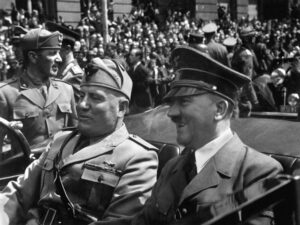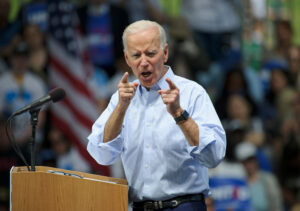When British Prime Minister Neville Chamberlain arrived home from Munich at the end of September 1938 flourishing the text of his agreement with Adolf Hitler, an agreement that he memorably described as delivering ‘peace for our time’, he was greeted as a popular hero who had saved the nation from the dire threat of another all-encompassing war. With the horrors of pan-European conflict barely a generation earlier seared indelibly on the national consciousness, there was no appetite in Britain for any resumption of hostilities, still less for standing up to the calculated provocations of Hitler’s warmongering.
Chamberlain was sure he was reflecting the public mood, as well as his own convictions, when he flew to Munich to negotiate with Hitler over the fate of the three million ethnic Germans in the
Sudetenland region of northern Czechoslovakia. Hitler cleverly used the notion of self-determination to support his claim that this group be reunited with Germany. Anxious to preserve peace at any cost, Chamberlain acceded to Hitler’s demands, giving an assurance that Britain would not intervene if Germany occupied the Sudetenland, as it duly did. The Munich agreement effectively pledged Britain and Germany to leave each other’s territorial ambitions alone.
Just six months later Germany seized the rest of Czechoslovakia, making a nonsense of an agreement dubbed by a Labour politician of the time as that ‘scrap of paper tom from Mein Kampf and by the historian Simon Schama as ‘the holy scrip of appeasement’. Britain’s subsequent guarantees to protect Poland were too little and too late. When in September 1939 Britain declared war on Germany following its invasion of Poland, Winston Churchill’s assertion, in a parliamentary debate a week after the Munich settlement, that ‘there can never be peace between the British democracy and the Nazi Power’ was proved chillingly true.
British Prime Minister Neville Chamberlain waving to the crowd at Heston Airport and declaiming, ‘Peace for our Time’, after returning from signing the Munich agreement.
When: September 1938
Where: UK and Germany
Toll: Czechoslovakia very soon paid a heavy price – the surrender of all its territory – for the sake of Chamberlain’s policy; and who knows how Hitler would have reacted if Chamberlain had not conceded?
You should know: Britain’s view of Nazi Germany in the 1930s was crucially colored by its fears of the threat posed by the Soviet Union – Germany being seen as an essential bulwark against the westward spread of communism.






















